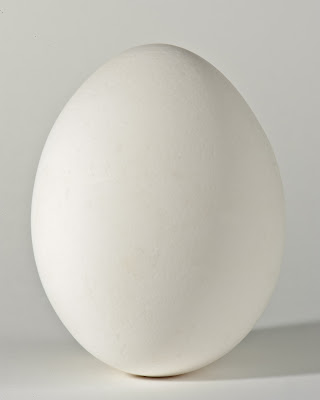Bàbi is a storyteller, Ma tells me. Due to language barriers (my grandmother's English was never proficient, and I was never adept with foreign tongues), I'll have to take her word for it.
But Ma isn't bad herself. Having been born in Europe, her childhood tales of comparative rusticity always enthralled me. Like the time the house was attacked by mice, and Zeidy borrowed a cat from the neighbor, bringing it back in a burlap sack.

The cat did the job, but one night Ma awoke to find the cat at the edge of her bed. Ma never liked animals, and did not fall back asleep again, just watched the feline with wide, horrified eyes.
Then there are the sagas of Holocaust survival. How Bàbi stole rags to keep her sister's children warm, how she pilfered potato peels to keep them fed, even getting caught and beaten by a farmer.
I tell over these same stories to my nieces and nephews, usually on a long Shabbos afternoon when they are desperate for entertainment. I try to drum into them the various messages; to be grateful, living in this wonderfully comfortable time when we can be warm and fed and not persecuted.
I have always felt that "To know where we are going, we must know where we come from." As Jews, that certainly has many meanings.
Bruce Feiler's article, "The Stories that Bind Us," possibly provides a reason for mysterious Jewish longevity (besides for the fact that we have had guaranteed existence from Above).
The single most important thing you can do for your family may be the simplest of all: develop a strong family narrative.
Knowing one's past fluently has all sorts of benefits.
. . . Dr. Duke’s wife, Sara, a psychologist who works with children with learning disabilities, noticed something about her students.
“The ones who know a lot about their families tend to do better when they face challenges,” she said.
Her husband was intrigued, and along with a colleague, Robyn Fivush, set out to test her hypothesis. They developed a measure called the “Do You Know?” scale that asked children to answer 20 questions.
Examples included: Do you know where your grandparents grew up? Do you know where your mom and dad went to high school? Do you know where your parents met? Do you know an illness or something really terrible that happened in your family? Do you know the story of your birth?
. . . The more children knew about their family’s history, the stronger their sense of control over their lives, the higher their self-esteem and the more successfully they believed their families functioned. The “Do You Know?” scale turned out to be the best single predictor of children’s emotional health and happiness.
Following the trauma of 9-11, the children who knew more about the family's past coped better. Being part of something larger than themselves provide children with emotional security.
It also matters in the manner of presentation. There are three types of narratives, according to Dr. Duke. (1) ascending, how each generation is an improvement upon the previous; (2) descending, how we used to have it good then lost it all; (3) oscillating, telling over the good with the bad, but that in the end, the family stayed together (obviously, the third narrative is the healthiest.)
Traditions, even goofy ones, have an beneficial impact.
Doesn't this sound an awful lot like the Jewish narrative?
What is our origin story? Heck, we've got books and books of them, detailing our high moments and our low ones, with the result that hey, 2,000+ years later in exile, we're still here. As for traditions, we are up to our eyeballs in them, some probably meaningless in origin, sometimes riding roughshod over actual halacha. But we cling to those traditions, apparently, for a reason.
My family, for instance, has a serious egg-fetish. On Pesach night, we eat a hard-boiled egg dipped in salt water before shulchan orech, and we consume the same egg smeared with ash on the night of Tisha B'Av, sitting on the floor. The circular egg, the constant symbol of life and renewal.
My constant coping mechanism in times of difficulty is to remember how my grandparents managed to claw through the unthinkable and rebuild. As did my anscestors, so very long ago, whose land was destroyed, and they were exiled to Babylon. The incredible, edible egg.

No matter how bleak matters may seem, it is never the end.
The bottom line: if you want a happier family, create, refine and retell the story of your family’s positive moments and your ability to bounce back from the difficult ones. That act alone may increase the odds that your family will thrive for many generations to come.
No comments:
Post a Comment